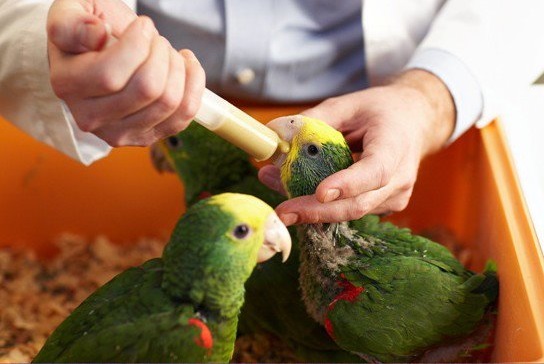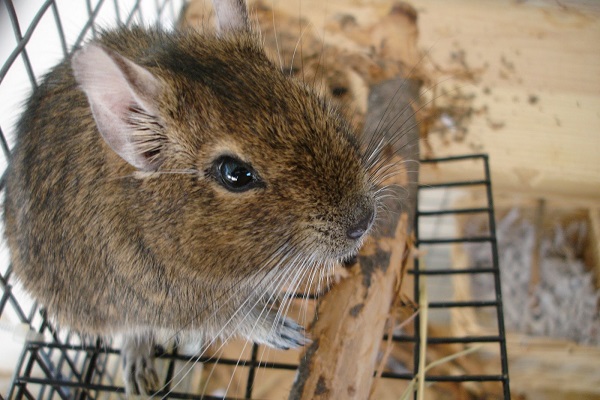|
26
MAR
2017
|
|
|
|
There are numerous foods available for dogs and sometimes it is difficult to know what is best for your four legged friend. At Burgess they only make foods that are healthy and contain the best of ingredients to make sure your dog stays happy and healthy. Burgess Sensitive which is now available in South Africa from 1 March 2018 is great for all dogs, but is particularly suited to those with a sensitive digestive system as the recipes are free from the usual ingredients that can upset your pet’s stomach. The recipes contain just simple, high quality ingredients like tasty British Turkey and Scottish Salmon.
Feeding Tips for When Your Dog is a Puppy
Introduce Burgess Sensitive in the early days gradually over a week, by mashing a little down with hot water to create a paste and cooling to room temperature. Gradually add less water until your puppy is eating the dry kibbles. If your puppy is already eating dry food, transition them slowly, over .. [More]
|

|
|
|
Tags :
Burgess Sensitive Dry Food For Dogs , Dog Food South Africa
|
|
|
|
25
MAR
2017
|
|
|
|
Hand-rearing a baby bird can be quite difficult and requires feeding every few hours by an experienced foster mom. However, many bird owners prefer purchasing just-weaned or about-to-be-weaned birds. Hand-rearing a bird over six weeks of age who has no problems and eats readily can be a very rewarding experience.
How Much to Feed
A baby bird should be eating 10 percent of his body weight per feeding. A 500-gram bird would need 50 milliliters of formula per feeding. A baby this age should be fed approximately three times per day.
It's important not to feed your bird if he still has food in his crop, which is the enlarged portion of the esophagus at the base of the neck, from the previous meal. Food in the crop for more than three to four hours is a sign of crop stasis, or slowing down, and could be the beginning of a bacterial or fungal overgrowth in the crop that can make your baby bird ill. If you feed your bird too much at each meal, his crop can become overs.. [More]
|

|
|
|
Tags :
How To Hand Rear A Baby Parrot South Africa
|
|
|
|
19
MAR
2017
|
|
|
|
Degus are not common household pets so there is a misconception that they are hard to look after, or they have special dietary needs. This could not be further from the truth, degus are very easy to care for and feed.
The only special consideration revolves around their susceptibility to health problems related to high sugar foods. Degus are very sensitive to sugar in the same way humans are with diabetes. Sugary foods should be avoided. But with some care on your part, it’s not hard to make sure they are receiving a healthy balance of nutrients from their food.
The degu diet in the wild consists of grasses, seeds and roots. It is nutrient poor so they spend a great deal of time foraging and eating. Degus need to keep their digestive systems busy with a mix of two kinds of fibre moving through their gut at all times (these types of fibre are called digestible fibre and indigestible fibre).
The majority of the degus diet should be high in indigestib.. [More]
|

|
|
|
Tags :
Degus Need A High Fibre Diet South Africa , Feeding Your Degus Healthy Food South Africa , What Do Degus Eat South Africa , Degus Food South Africa , Degus Diet South Africa
|
|
|
|
07
MAR
2017
|
|
|
|
Gerbils are active and entertaining pets, but there are things they require to be completely happy, including an environment that caters for their very specific gerbil needs.There are many species of gerbils, though the Mongolian gerbil is the type most commonly kept as a pet. Their scientific name Meriones unguiculatus translates as ‘little clawed warrior’. These burrowing rodents are naturally adapted to desert environments in Africa, India and Asia. Although very agile, they can’t climb well due to fur covering the soles of their feet.
Roommates required
In the wild, gerbils live in extended families of one breeding pair and their offspring of several generations. Pet gerbils need at least one companion and are happiest in same-sex pairs or small groups as they breed from three months old and can swiftly produce a litter of four to 10 babies every 24 days…
Somewhere to burrow
Burrowing is a very important behaviour for all gerbils. .. [More]
|

|
|
|
Tags :
Why We Love Gerbils
|
|
|
|
|
|
Category List
|
|
|
|
|
|
Archive List
|
2025 2023 2022 2021 2020 2019 2018 2017 2016 2015 2014 |
|
|